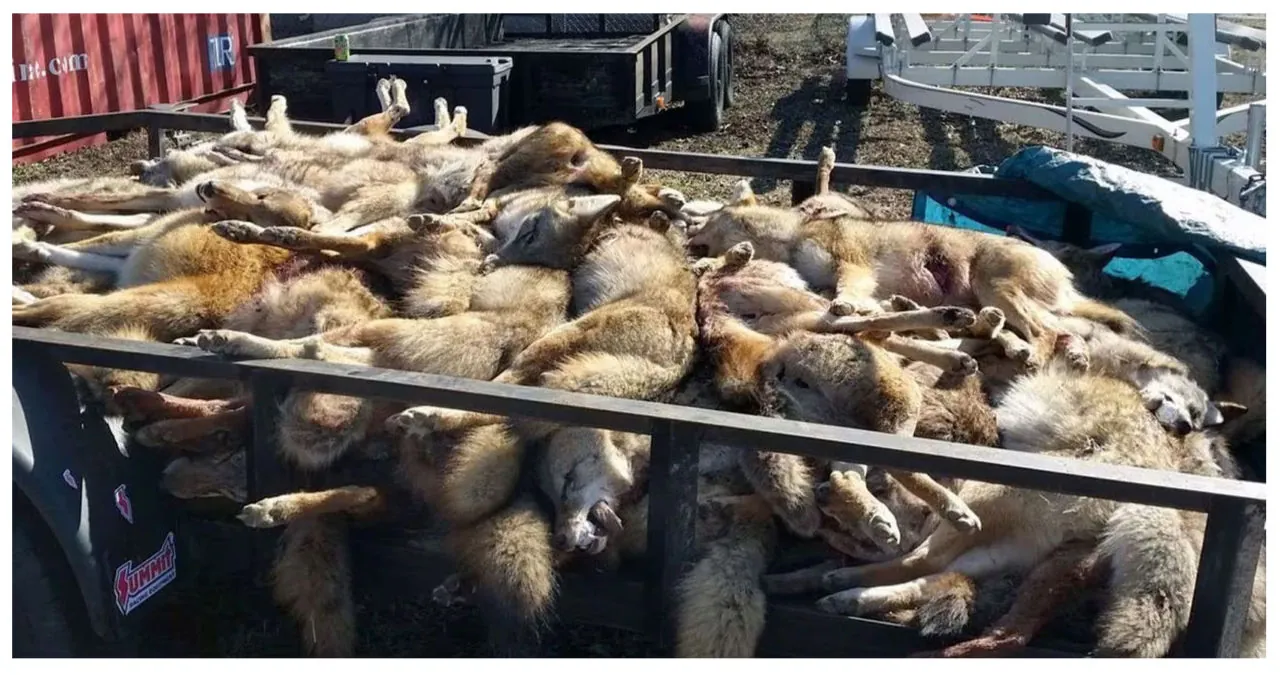In a landmark move, New York Governor Kathy Hochul took a significant step towards protecting wildlife by signing a groundbreaking law in December. This legislation effectively bans wildlife killing contests in the state, putting an end to the senseless slaughter of thousands of animals that used to occur annually in around 20 such events. With this action, New York joins the ranks of nine other states, including Massachusetts, Maryland, and Vermont, in the eastern region of the United States, that have already outlawed these contests.
The Lamar Township Volunteer Fire Company in Clinton County will be hosting the “Annual Predator Hunt” from February 16-18. Although the event is advertised as a fundraiser for the fire company, the majority of the proceeds actually go to the participants of the contest. It would be more beneficial for the fire company to explore alternative fundraising methods, similar to what Schuylkill County did in 2019. Instead of a live pigeon shoot, they organized a wine festival to raise funds for a park.
Wildlife killing contests do not serve any genuine purpose in wildlife management. Although there are some people who believe that large-scale killing of coyotes, which are often the main target, will decrease their population, prevent conflicts with livestock, or increase the numbers of game species like deer or turkey, biologists from the Pennsylvania Game Commission have highlighted that managing wildlife cannot be based on intuitive reasoning or anecdotal information.
The Game Commission has recently recognized that paying bounties and implementing predator control as a management strategy are ineffective. Instead, they have acknowledged the significance of habitat in increasing populations of turkey and other game animals. They have also observed that carnivores play a crucial role in maintaining healthy ecosystems.
Regrettably, even though numerous Pennsylvania residents have voiced their concerns and urged the agency to put an end to killing contests, the Game Commission has chosen to allow these competitions to persist, giving priority to the small fraction of residents who partake in them.
In recent years, wildlife commissions in six other states have taken a stand against killing contests. In Arizona, California, Colorado, Massachusetts, Oregon, and Washington, these commissions, along with wildlife agency professionals, have recognized the ethical, unsporting, and unscientific nature of these contests. As a result, they have made the decision to abolish killing contests, while in four other states, contests have been banned through legislative action.
In 2019, the Arizona Game & Fish Commission acknowledged another aspect of these contests. They expressed concern that the public outrage they generate has the potential to undermine hunting as a legitimate wildlife management practice.
In 2020, when Colorado implemented a ban on hunting contests, Dan Gibbs, the executive director of the Colorado Department of Natural Resources, expressed his strong disapproval. He stated, “For me, hunting contests don’t sit well. As a sportsman, I would never participate in one personally. Hunting is an important and revered tradition in Colorado, and it serves as a powerful management tool. However, I also believe that wildlife killing contests tarnish the reputation of sportsmen and sportswomen, giving them a bad name.”
The Pennsylvania Game Commission must act swiftly to prohibit wildlife killing contests. This activity, which has been condemned by New York and nine other states, is an unnecessary and shameful practice that causes significant harm to our wildlife. Participants engage in this extreme fringe activity solely for the sake of prizes and boasting, resulting in the devastating depletion of our precious wildlife populations.
Read More:
- First Black Female Franchise Owner of Chick-Fil-A in PA Hails from Malvern
- Record-Breaking Maple Sap Flow in New York State Overnight at Rootbound Homestead

